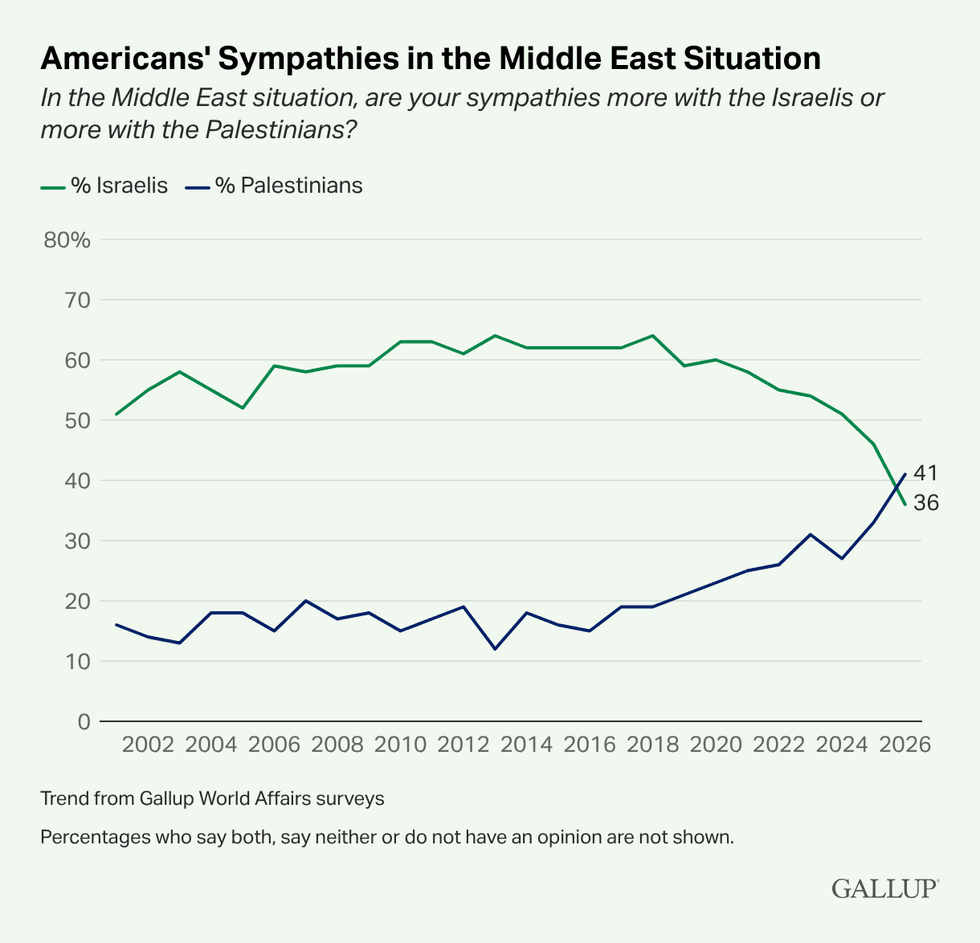September, 25 2023, 01:19pm EDT

50+ High Schools Launch Green New Deal for Schools Campaign
Today, in response to attacks from the Right on the American education system, as well as slow federal action on the climate crisis, the Sunrise Movement launched its Green New Deal for Schools Campaign in over 50 high schools across America.
“The Green New Deal for Schools will transform public schools in America to face the climate crisis and ensure all students receive safe and high-quality education – no matter their zip code or the color of their skin,” said Adah Crandall, 17, one of the leaders of the campaign. “Our generation is on the front lines of this fight and it's time for our school districts to take real action.”
Student organizers are launching Green New Deal for Schools campaigns in every corner of the country – from Pennsylvania to Michigan to Arizona – demanding that school districts face the climate crisis, listen to their students, and deliver on Green New Deal for Schools demands listed below. They are calling on school boards and superintendents to pass district-wide policies, while building the power and momentum for eventual federal legislation that transforms our school system to stop the climate crisis.
“For too long, students have been left out of the decision making spaces within our schools,” said Shiva Rajbhandari, Sunrise Movement organizer and Idaho’s youngest elected school board member. “Students are the most important constituents of our school boards and they deserve to call the shots for their own education. Public schools belong to us, and we know we deserve better.”
This comes as Republican extremists across the country are imposing their agenda on students in public schools. In Texas, education officials plan to rewrite climate science textbooks. There has been a years-long fight in Idaho on teaching climate change education in schools. Extremists are imposing book bans on students. Meanwhile, students across the country are facing the brunt of the climate crisis and struggling to learn amid heat waves and other climate disasters hitting their schools.
“The Republican Party knows that they don’t have the youth vote,” said Aster Chau, a student and Green New Deal for Schools Organizer at the Academy at Palumbo in Philadelphia, Pennsylvania. “They’ve spent the last few years antagonizing students and teachers — eroding trust in public education — in order to distract from all of the problems they’ve created in our society. Today, we say no more — these are our schools and our futures.”
As 2024 approaches, young voters will be one of the most important voting blocs, as they were in 2020 and 2022. Consistently, they rank clean air and water as one of their top issues.
The Green New Deal for Schools campaigns are demanding:
- SAFE AND CLEAN BUILDINGS: School buildings, buses, and other school infrastructure must be updated to run on 100% clean energy, be climate resilient, and ensure safe, non-toxic learning environments.
- FREE & HEALTHY LUNCH: Schools must provide locally sourced and sustainably grown lunch to all students for free, to make sure no student goes through the school day hungry.
- PATHWAYS TO GREEN JOBS: Schools must offer opportunities to connect students with meaningful and good paying union jobs combatting the climate crisis.
- CLIMATE DISASTER PLANS: When climate disaster strikes, school administrations must have plans to help students recover and use buildings as designated relief zones for the whole community.
- CLIMATE CURRICULUM: Students must be taught a comprehensive climate justice curriculum - developed by scientists, educators, and students, not lobbyists and politicians - that helps them understand our history and prepares them to face the climate crisis.
This comes after Sunrise Movement held a multi-week summer camp to train hundreds of high schoolers from across the country on how to run campaigns in their schools, plan protests, and grow their organizing skills. It also comes on the heels of Sunrise’s historic win for an American Climate Corps, building youth momentum across the country.
Sunrise Movement is a movement to stop climate change and create millions of good jobs in the process.
LATEST NEWS
Footage Contradicts DHS Claim That It Dropped Blind Rohingya Refugee at 'Safe Location' in Buffalo
Nurul Shah Alam was found dead on a Buffalo street this week, days after being released from a county jail and dropped at a closed coffee shop by Border Patrol agents.
Feb 27, 2026
Surveillance footage taken at a Tim Hortons donut shop in Buffalo, New York contradicts the US Department of Homeland Security's claim that Border Patrol agents dropped Nurul Shah Alam, a 56-year-old nearly blind Rohingya refugee, at a "warm, safe location" after he was released from jail last week, days before he was found dead.
The video obtained by the Buffalo-based outlet Investigative Post late Wednesday showed a white van pulling up to the shop at about 8:18 pm Eastern, more than an hour after the store—except its drive-thru window—had closed for the night.
A man identified by the Investigative Post as Shah Alam is seen walking by the drive-thru window and then approaching the locked door before walking across the parking lot.
Breaking: IPost has obtained footage showing a Border Patrol van dropping off Nurul Shah Alam at a closed Tim Hortons last Thursday.
Shah Alam, nearly-blind & unable to enter the shop, then wandered the city for days. He was found dead Tuesday.https://t.co/fCtRtaxaU9 pic.twitter.com/VkEqgiAUVe
— Investigative Post (@ipostnews) February 27, 2026
The Border Patrol agents who dropped off Shah Alam—who spoke no English and was blind in one eye with partial, blurry vision in the other—appeared to make no attempt to ensure the Tim Hortons was actually a "safe, warm location" that he could access. The van pulled out of the parking lot less than a minute after Shah Alam was seen exiting it.
When the news broke Wednesday that Shah Alam's body had been found on a Buffalo street days after he was dropped off following his release—and after subfreezing temperatures hit the Western New York city over the weekend—a spokesperson for Border Patrol said the agents had "offered him a courtesy ride, which he chose to accept to a coffee shop" that was "determined to be a warm, safe location near his last known address."
They also claimed that Shah Alam, who used a walking stick to get around before his arrest last year, "showed no signs of distress, mobility issues, or disabilities requiring special assistance."
The agents never notified Shah Alam's wife and children or his lawyers that he had been dropped off.
"So when [the Department of Homeland Security] says they 'offered him a courtesy ride to a warm, safe location'... they mean they abandoned him in the parking lot of a closed Tim Hortons in the middle of a winter evening in Buffalo," said Jeremy Konyndyk, president of Refugees International. "They lie about EVERYTHING."
Shah Alam had been detained at the Erie County Holding Center since February 2025, when he got lost on the way home from a store where he'd purchased a curtain rod to use as a walking stick. He ended up in the backyard of a woman who called the police, who later reported Shah Alam was swinging the rod "in a menacing manner"—a claim his lawyer denies.
The Investigative Post also obtained police body camera footage of the arrest, which shows Shah Alam saying, "OK" and dropping one end of the curtain rod when an officer told him to put the stick on the ground. The footage also showed the officers Tasering Shah Alam and tackling him to the ground.
After the incident, Shah Alam was charged with assault, trespassing, and possession of a weapon—his walking stick—and held at Erie County Holding Center until last Thursday, after he took a plea deal. He agreed to plead guilty to trespassing and possession of a weapon and was able to avoid immigration detention even though Border Patrol had issued a detainer on him after the arrest, saying he was eligible for deportation.
Buffalo Mayor Sean Ryan told the Investigative Post Thursday that upon finding the Tim Hortons closed last week, Border Patrol should have taken Shah Alam back to the Erie County Holding Center, where sheriff's deputies who knew his family from their frequent visits to the jail could have called them.
“The lawyer was not informed, and the family is just saying, ‘You had our contact information, you had our address,'” a family friend named Khaleda Shah, told the outlet. “Why not drop him at the address that’s on file for him? Why not bring you back to the holding center, rather than Tim Hortons?”
When New York Times columnist Nicholas Kristof posted on X about Shah Alam's death on Thursday, DHS responded with its claim that the agents had brought him to a safe location.
"Video shows that it was night and the coffee shop was closed, so he never entered it," Kristof replied, "Instead, mostly blind and in need of a cane, unable to speak English, he tried to walk home through the freezing night—because your agents never called his family or lawyer but seem to have left him to die. Do you see how your credibility is undermined when you repeatedly make claims that are later contradicted by video evidence? Why should we trust statements from an agency with such a record of deceit?"
DHS had not publicly responded at press time.
Refugees International was among those calling for a full investigation into Border Patrol's "abandonment" of Shah Alam.
Daniel P. Sullivan, the group's director Africa, Asia, and the Middle East, noted that the US determined in 2022 that the Myanmar military had committed genocide against the Rohingya people, and Shah Alam was resettled in the US in 2024 after surviving the violence and persecution.
"The death of Shah Alam comes in the midst of ongoing violent immigration enforcement operations by [Customs and Border Protection and Immigration and Customs Enforcement] agents that have led to widespread abuse and neglect of legally resettled refugees as well as deaths of immigrants and American citizens alike," said Sullivan.
"Refugees International, once again, strongly condemns the Trump administration’s hateful and dehumanizing targeting of those who seek refuge," he said. "We express solidarity with Mr. Shah Alam’s family, the broader Rohingya community, and all of our neighbors who face increased uncertainty and risks of harm due to the Trump administration’s current policies.”
He also said that one member of the Rohingya community had told the organization that Shah Alam's "safe haven became a tragedy for him.”
Keep ReadingShow Less
Green Party Scores Upset Win in UK Election in Blow to Labour, Far-Right Reform
"Instead of working for a nice life, we’re working to line the pockets of billionaires," victorious Green Party candidate Hannah Spencer said during her victory speech. "We’re being bled dry."
Feb 27, 2026
Green Party candidate Hannah Spencer on Thursday won an upset victory in a byelection in the Gorton and Denton constituency, delivering a blow to both Labour Prime Minister Keir Starmer and the far-right Reform Party led by Nigel Farage.
As reported by the Guardian, Spencer, a local plumber, won by overturning a 13,000-vote majority that the Labour Party achieved in the 2024 general election.
In fact, Labour fell to third place in the Thursday election, winning 9,364 votes, compared to 14,980 votes for the Greens and 10,578 votes for Reform.
In her victory speech, Spencer emphasized major class divides in the UK, where she said people are working increasingly harder for fewer benefits.
"Working hard used to get you something," she said. "It got you a house. A nice life. Holidays. It got you somewhere. But now—working hard? What does that get you?... Instead of working for a nice life, we’re working to line the pockets of billionaires. We’re being bled dry."
The Green Party said Spencer's victory showed it was now a viable force in national elections, projecting that it is "on track to win over a hundred seats at the next general election, if the historic swing achieved to win Gorton and Denton is replicated nationwide."
Green Party leader Zack Polanski hailed the election result and predicted "a tidal wave of new Green MPs" in future elections should current trends continue.
"When I was elected Leader of the Greens I said we were here to replace Labour and I meant it," Polanski said. "Hannah was a fantastic candidate and I know she’ll make a brilliant MP."
Starmer, who has pushed the Labour Party to the right on issues such as immigration and transgender rights during his tenure, reacted bitterly to the defeat in a letter he sent to other Labour MPs.
"The result in Gorton and Denton is deeply disappointing," Starmer wrote. "Instead of a Labour MP who can be a local champion delivering for Gorton and Denton alongside a Labour Government and a Labour mayor, the people of Gorton and Denton now have a representative who is more interested in dividing people than uniting them."
Starmer, whose job approval rating in polls is consistently under 20%, also predicted that "over the coming months, people will feel the benefit of the long-term decisions this government is taking."
Socialist commentator Owen Jones, a longtime Starmer critic, gloated over the result in a social media post in which he reminded followers of Starmer's past statement that left-wing voters could "leave" if they didn't like the changes he was making to Labour.
"OK, Keir Starmer, we did as you asked us!" he wrote. "Happy now?"
Keep ReadingShow Less
For First Time, Gallup Poll Shows Americans Sympathize More With Palestinians Than With Israelis
"It is difficult to overstate the significance of this," said one analyst. "This is a key reason why Israel—and its supporters in the US—have a sense of desperate urgency when it comes to war with Iran and annexation of Palestine."
Feb 27, 2026
A Gallup survey released Friday found that a larger percentage of Americans sympathize with the Palestinians than with the Israelis in the decades-long Middle East conflict, which has exploded over the past two and a half years with the Hamas-led attack on Israel and the latter's genocidal response—fueled by military and diplomatic support from the US government.
The new poll marks the first time since Gallup began tracking the question in 2001 that a larger portion of respondents (41%) expressed sympathy for the Palestinians than the Israelis (36%) "in the Middle East situation." The organization noted that while "the five-percentage-point difference is not statistically significant," it "contrasts with a clear lead for the Israelis only a year ago (46% vs. 33%) and larger leads over the prior 24 years."
"From 2001 to 2025, Israelis consistently held double-digit leads in Americans’ Middle East sympathies, with the gap averaging 43 points between 2001 and 2018," Gallup reported. "However, public opinion began narrowing in 2019, several years before the Oct. 7, 2023, Hamas attack on Israel and the subsequent war in Gaza. The cumulative effect of gradual changes in US attitudes since then has led to the Israelis no longer being viewed more sympathetically."

Notably, the Gallup survey shows that "Americans of all age groups have grown more sympathetic to the Palestinians in recent years." A majority of Americans between the ages of 18 and 34 (53%) said they sympathize more with the Palestinians and 23% said they sympathize more with the Israelis, "a record low for the age group," according to Gallup.
The survey also showed a "near reversal" among Americans aged 35 to 54—with 46% now saying they sympathize more with the Palestinians—and the "narrowest gap in sympathies" Gallup has ever recorded for Americans aged 55 and older.
In terms of political affiliation, Gallup found that "Americans’ shifting sympathies in the Middle East situation this year are mostly driven by changes among political independents," who now sympathize more with the Palestinians than the Israelis by a margin of 41% to 30%.
"It is difficult to overstate the significance of this," Trita Parsi, executive vice president of the Quincy Institute for Responsible Statecraft, wrote in response to the Gallup survey. "This is a key reason why Israel—and its supporters in the US—have a sense of desperate urgency when it comes to war with Iran and annexation of Palestine."
"The window for these aggressions with US support is closing," Parsi added.
The new poll also found that Americans' support for a Palestinian state is at its highest level in more than two decades as current Israeli leaders vow to prevent Palestinian statehood and ramp up their illegal annexation of territory—an effort effectively endorsed by the Trump administration.
Keep ReadingShow Less
Most Popular


